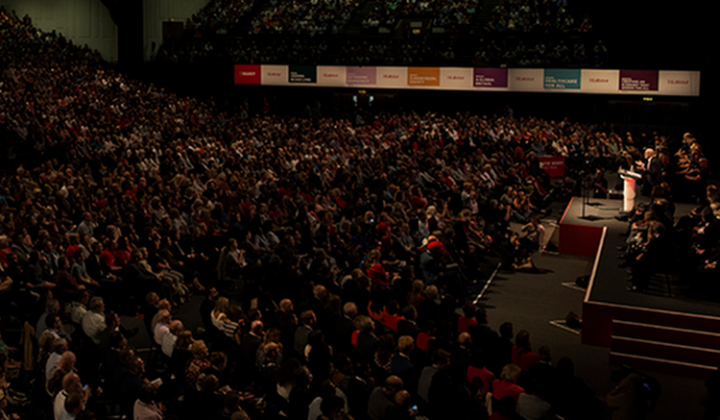Jeremy Corbyn, Leader of the Labour Party, speaking at the Cooperative Party Conference last Saturday has touched many important topics about national and international politics. The complete text can be read here.
Here are some of the most significant passages of his speech.
“We need co-operative values at home and abroad” he said. “We live in a world riven by conflict, spurred on by ego and neo-imperial ambition. Never has the time been more important to restate our commitment to the UN Charter, the third clause of which states its aim ‘To achieve international co-operation in solving international problems’.
With the problems facing us of nuclear proliferation, climate change, the global refugee crisis, the humanitarian crises in Syria, Yemen and of the Rohingya in Myanmar – a global vision driven by our co-operative principles is more necessary than ever. Whether its Donald Trump or Kim Jong-Un – macho posturing needs to give way to calm, rational co-operation. And across the world co-operatives play such a huge role as a spur to development, empowering women, bringing communities together. And today there are over a billion people worldwide who are members of co-operatives and I am proud to say that I am one of them”.
He then admitted that, as Philip Hammond said, Labour “is threatening to destroy the current economic model, a system which exploits the many for the profits of a few, that the Conservatives want to defend. They want to conserve the privilege of the few.
I am not going to sit back when their economic model is seeing:
– homelessness double
– four million children in poverty
– over a million older people not getting the care they need
Their economic model is broken. It doesn’t work for most people. Even the International Monetary Fund thinks inequality and low taxes for the richest are harming the economy” he added.
“When we talk about taking natural monopolies into public ownership we’re not inspired by the centralised and remote models of the 1940s and 1950s. We’re determined to create models of ownership that involve workers and consumers based on Co-operative principles, whether that’s at community, regional or national level.
“I believe that we are entering a period of unprecedented opportunity for socialist politics and co-operative principles. New technology is empowering participation, new social movements today are horizontalist rather than hierarchical, networked rather than top-down. That’s why when I ran to be Labour leader I said I wanted our party to be a movement. And today we are with well over half a million members who joined because they want to be involved and want to participate in our movement”.
The top-down model of organisation, whether in politics, the media or in business, is being challenged and is breaking down.
The technology of the digital age should be empowering workers, enabling us to co-operate on a scale not possible before and yet too often it has enabled a more rapacious and exploitative form of capitalism to emerge.
Look at Uber, Deliveroo, and others. The platforms these companies use are the technologies of the future. But, too often, their business models depend not on technological advantage, but on establishing an effective monopoly in their market and using it to drive wages and conditions through the floor.
Digital platforms are opening up huge opportunities for horizontal, more democratic, forms of organisation to flourish.
Imagine an Uber run co-operatively by their drivers, collectively controlling their futures, agreeing their own pay and conditions, with profits shared or re-invested.
This new consensus will reward the real wealth creators – that means all of us. It will genuinely value people and communities – and invest in them. It will create an economy fit for the 21st Century with a state that’s not afraid to act when something goes wrong but, more importantly, also proactive to make sure things work in the first place.
The biggest obstacle to this is not technological but ourselves. We must have the confidence and organisational skill to make it happen.
Co-operatives should be supported by government through access to finance, through legal changes to level the playing field for cooperatives in the market, and through a better government procurement policy, so that public money is being used to support companies that serve the public good.
To prevent just the few benefiting from the “rise of the robots”, we consider higher minimum wages, a shorter working week, profit sharing schemes, or putting the ownership and control of the robots in the hands of those who work with them and come to rely on them.
We don’t have all the answers yet, but are thinking radically about how we can shape the next thirty years to use the power of new technology to make our economy work for the many not the few.
We are inspiring millions.
We are a movement ready to take office and ready to shape our country for the future”.






